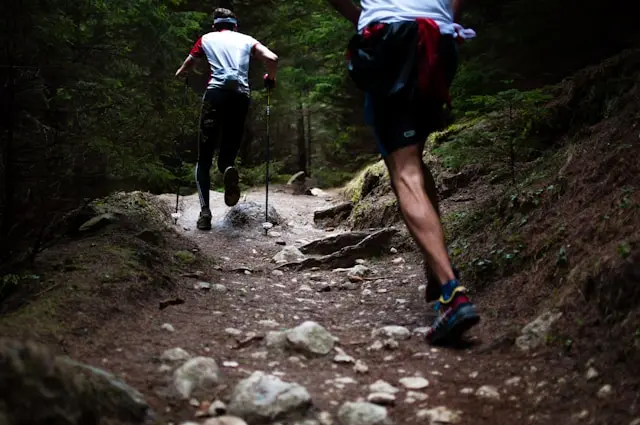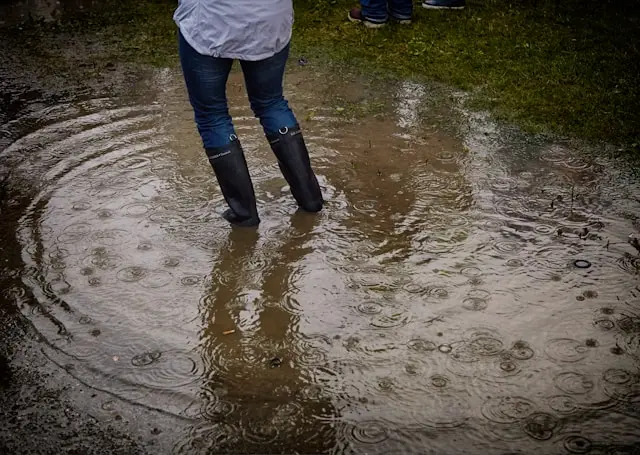Key Takeaways
- Hiking offers numerous physical health benefits, including cardiovascular improvements and muscle strengthening.
- It improves mental health by lessening depressive and anxious feelings.
- Spending time in nature can lead to greater overall well-being and a sense of tranquility.
Table of Contents
- Physical Benefits of Hiking
- Mental Health Benefits of Hiking
- Connection with Nature
- Getting Started with Hiking
- Essential Gear for Hiking
- Safety Tips for Hikers
- Final Thoughts
Physical Benefits Of Hiking
Hiking is a fantastic way to improve physical health while enjoying the beauty of nature. The rhythmic motion of walking on varied terrain strengthens muscles and enhances cardiovascular fitness. As hikers navigate trails, they use trekking poles to engage different muscle groups, including the legs, core, and upper body. This full-body workout helps improve balance, coordination, and endurance. Additionally, the fresh air and sunlight exposure boost mood and overall well-being, making hiking a potent activity for both body and mind.
For those looking to explore new trails and maximize the physical benefits, joining Utah hiking tours can be a great option. These guided tours offer the opportunity to experience some of the most breathtaking landscapes while ensuring the hikes are tailored to your fitness level.
Mental Health Benefits Of Hiking
The positive impact of hiking on mental health is well-documented. According to a National Institute of Mental Health study, spending time in nature can significantly reduce symptoms of anxiety and depression. Walking through natural landscapes helps to clear the mind, reduce stress, and improve overall mood. A consistent hiking rhythm promotes mindfulness and decreases cortisol levels, the stress hormone. After reaching a hiking goal, the sense of accomplishment can also boost self-esteem and overall life satisfaction. Furthermore, the social aspect of hiking can combat feelings of loneliness and isolation, as group hikes encourage companionship and support.
Connection With Nature
Hiking provides a much-needed break from the daily grind by allowing people to reconnect with nature. Research from Psychology Today suggests that nature profoundly impacts our well-being. Exposure to the natural environment can increase peace and tranquility, providing a break from technological distractions. Beyond psychological benefits, this connection with nature can foster environmental stewardship and a deeper appreciation for the natural world. A hike’s diverse sights, sounds, and smells expose people to a multi-sensory experience that rejuvenates the mind. Moreover, spending time in nature can spark creativity and inspire problem-solving, giving individuals a fresh perspective on life’s challenges.
Getting Started With Hiking
Hiking beginners must select a trail appropriate for their fitness level. As you gain endurance, progressively increase the challenge of your short, simple hikes. Engaging in this practice helps to reduce the risk of injuries by enabling your body to adapt slowly. Tell someone, always, about your trekking plans and anticipated time of return. Joining local hiking groups or clubs can also provide support and motivation as you embark on your hiking journey. It’s important to start slowly and pace yourself, paying attention to your body’s signals. Make sure to warm up before hitting the trail to avoid muscle strain, and always cool down after hiking to aid recovery.
Essential Gear For Hiking
Having the right gear is crucial for a safe and enjoyable hike. Remember to have reliable hiking boots, a sturdy backpack, sufficient water, snacks, a first-aid kit, and a map or GPS. Additional items such as rain gear, extra layers, and sunscreen may be necessary depending on the weather. Investing in quality gear can enhance your overall hiking experience, providing comfort and protection against the elements. Don’t forget to pack a whistle and headlamp for emergencies. Proper gear can significantly impact your hiking experience, reducing the risk of blisters, overheating, and other common hiking woes. Always opt for breathable, moisture-wicking clothing to stay comfortable throughout your hike.
Safety Tips For Hikers
Having a good understanding and making appropriate plans for the trail is essential to ensure hiking safety. Before starting the hike, check the weather forecast and prepare for sudden changes. Stay on designated pathways to prevent getting lost and be aware of the local fauna. Staying well-hydrated and taking regular breaks is crucial to avoid exhaustion. Inform someone about your hiking plan and expected return time. To guarantee a safe and pleasurable trip, always be aware of your limitations and the state of the trail. Carry a first-aid kit at all times and know basic first-aid procedures. Additionally, get familiar with the local flora and fauna to steer clear of hazards like poisonous plants or aggressive animals.
Final Thoughts
Trekking provides numerous advantages for both physical and mental well-being. There are abundant benefits to be gained from spending time on the trails, ranging from improvements in heart health to better mood and reduced stress. Whether you are an experienced hiker or a novice, venturing into nature can lead to a happier, healthier life. Embrace the journey, prioritize safety, and savor the countless benefits that trekking offers. Adding trekking to your regular activities enriches your life and promotes a deeper connection with the natural world, fostering a sense of wonder and reverence for the environment. Therefore, put on your trekking boots, gather your equipment, and embark on a path toward improved health and overall well-being.



